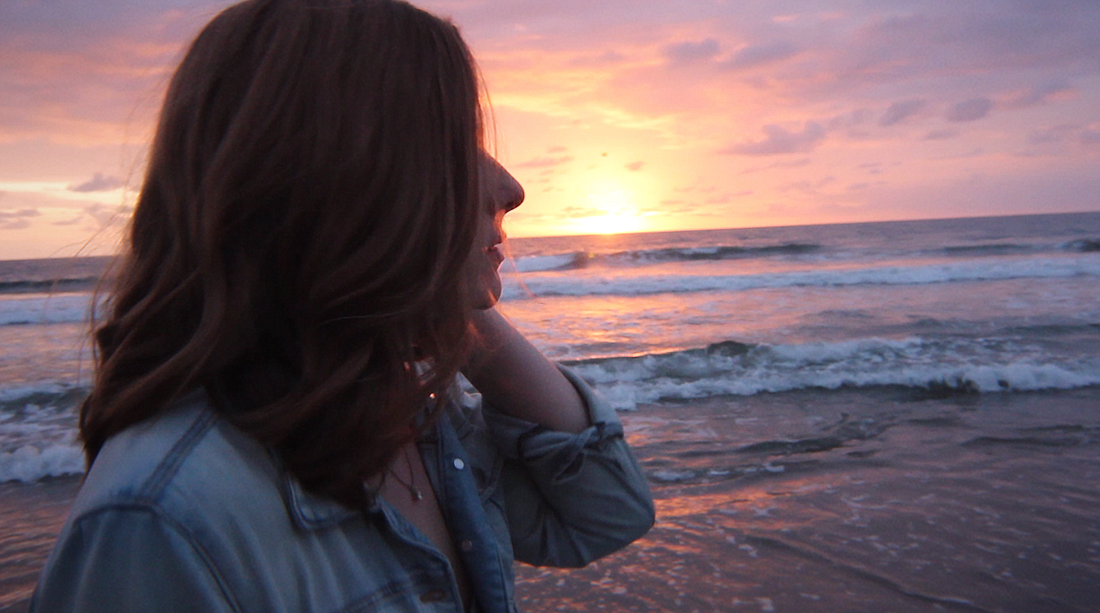- November 22, 2024
-
-
Loading

Loading

It’s not a fun topic to talk about. It’s ugly and it’s evil and it makes my blood boil — but it’s never been more relevant. So let’s talk.
The #MeToo movement is changing how (and how often) we talk about sexual assault, and Jillian Corsie’s autobiographical documentary short “Second Assault” addresses a side of the issue that isn’t as widely discussed.
What if you gather the courage to report your experience, but nobody believes you?
Corsie was in her first month of college when she was raped by a man she knew. And nobody believed her. Not even the police officer who she reported it to. The experience was so traumatizing, she held onto a copy of the police report for 12 years before being able to read it and fully revist the experience.
The film, which premiered at the Sarasota Film Festival on April 17, follows Corsie’s brave return to the past that she tried so hard to put behind her, and even includes a meeting between the survivor and the police officer who didn’t believe her report (which, as she reminds him, was painful enough, having to share graphic details in order to report).
Sexual assault affects so many people in the world, and in the U.S., most people have now heard the staggering statistic from the National Sexual Violence Resource Center that 1 in 5 women will be sexually assaulted in college.
That same statistic crosses the screen in “Second Assault,” and sadly, it’s not surprising. What’s more effective is hearing Corsie describe how her life was torn apart from this experience of being told what happened to her was not rape.
The cinematography in the film is breathtaking without being cheesy. The drone shots of her former campus, for example, were taken on a beautiful, sunny Arizona day with no dark, stormy clouds to represent the overcast skies above her during this dark period in her life.
By avoiding these cheap cliches, the story remains authentic and deeply personal — the exact opposite of how it came off the first time she told it more than a decade ago.
“It’s not so much the instance itself but what it instigated,” Corsie says at one point, revealing what was perhaps the most astounding piece of her story: that the experience of reporting and being told her feelings weren’t valid was worse than the rape itself.
Perhaps the most raw moment of all is watching Corsie pace back in forth in a classroom, waiting for the meeting with the police officer who she filed her report with. There’s a wide shot that allows her to cross the path of the camera several times, and the only sound we hear for several moments is light footsteps and heavy, forcefully deep breaths before she whispers “Why did I decide to do this?”
At a Q&A after the debut screening, Corsie told her audience that the same week she and her Co-Director Amy Rosner started a crowdsourcing campaign to help fund the film, news broke about Harvey Weinstein’s sexual assault allegations.
The timing couldn’t have been more perfect.
The film is as moving as it is uncomfortable. But it’s a good discomfort. The type of discomfort that makes you want to get out of your comfy movie theater seat and do something. You want to reach through the screen and offer Corsie a hug as much as you want to grab a marker and posterboard and go picket outside Betsy DeVos’s house (on September 22, 2017 the education secretary formally rescinded Obama-era rules — such as a lower burden of proof — regarding how schools handle sexual assault cases under Title IX).
“Second Assault” is a true story told in such a genuinely honest way, it hurts to watch at times. But by the end, it patches up viewers’ emotional scars and leaves them with a feeling of hope. It makes you think that maybe, if there are people out there like Corsie who will continue to speak out even after being silenced, that collective voice of survivors will get louder and eventually be heard by the right people.
April is Sexual Assault Awareness Month. If you or someone you know is a struggling survivor of sexual assault, you can get help locally at Safe Place and Rape Crisis Center in Sarasota and Hope Family Services in Bradenton.